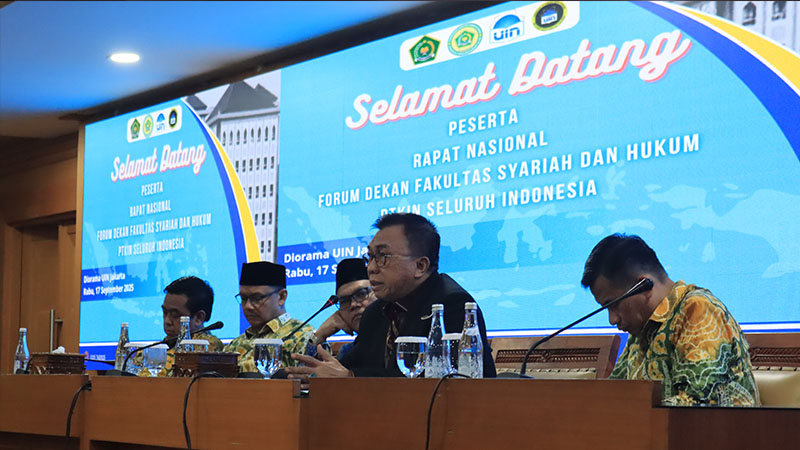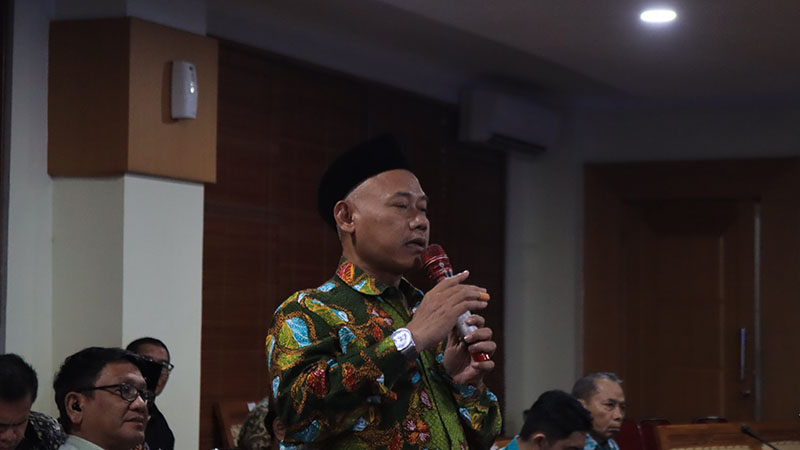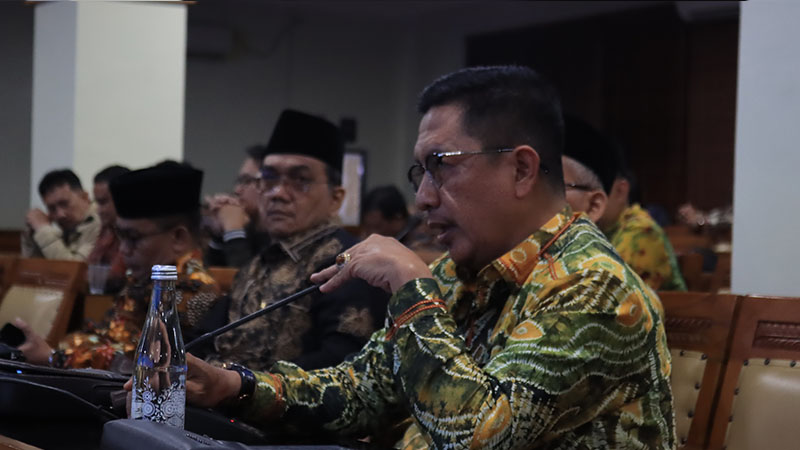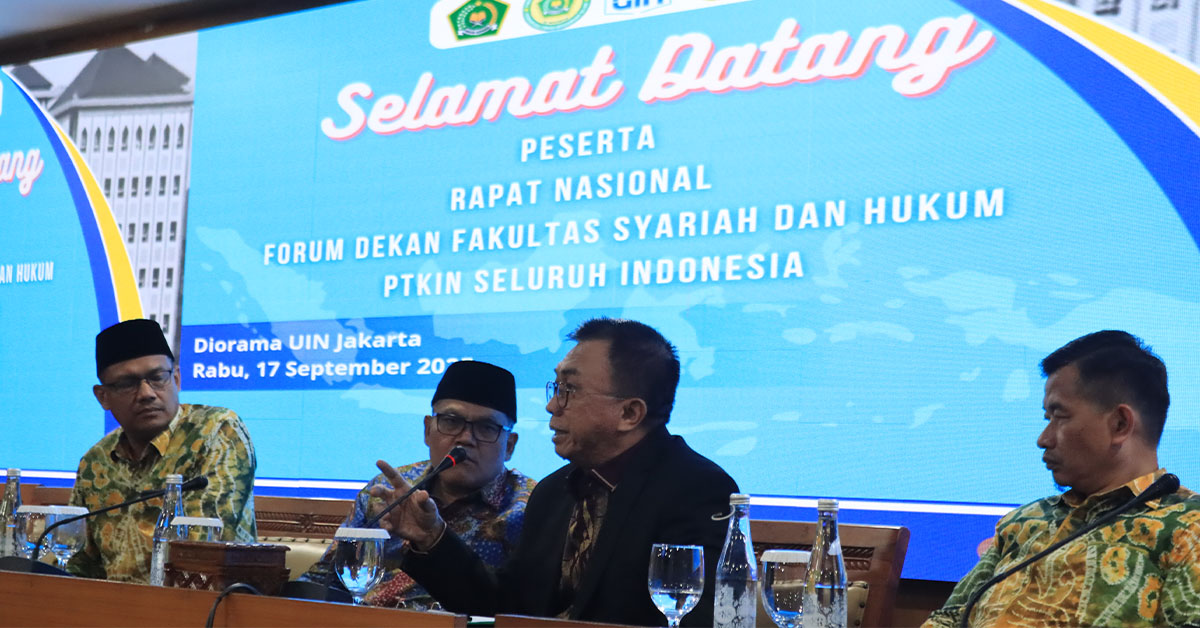Challenges and Expectations of Faculty of Sharia Alumni in Judge Recruitment: Proposed CAT Training to Formation Highlights
FSH NEWS, Diorama UIN Jakarta - In a discussion forum with the Directorate General of Religious Courts, Drs. H. Muchlis, S.H., M.H., a number of academics from various State Islamic Religious Universities (PTKIN) expressed concerns and hopes regarding access and opportunities for Faculty of Sharia alumni in the recruitment process of judges in the Supreme Court. (17/9/25)
Prof. Dr. H. Abdul Ghofur, M.Ag., Dean of FSH UIN Walisongo Semarang highlighted the limited readiness of Faculty of Sharia alumni in facing the Computer Assisted Test (CAT) as part of the selection process. He suggested special training for prospective alumni who are interested in becoming judges to be better prepared to compete in the national selection. In addition, he questioned the need for a special strategy to direct graduates to be more focused on religious courts, considering that many of them actually apply to the general courts.
Meanwhile, Prof. Dr Kamaruddin, S.Ag., S.H., M.H., Dean of IAIN Kendari's Faculty of Sharia highlighted the high administrative standards in the formation of judges, including the demands for accreditation of study programmes. He hoped that the Supreme Court and related agencies can develop a more adaptive formula, especially for PTKIN in eastern Indonesia. He also raised the issue of inequality of opportunities between graduates of the Faculty of Sharia and the Faculty of Law in filling formations in general courts.
In response, the Director General of Badilag, Drs. H. Muchlis, S.H., M.H., explained that currently the selection of judges is fully under the control of the National Civil Service Agency (BKN), including the CAT process and Basic Competency Selection (SKD). "We are not given access to compile or test questions, everything is held by BKN," he said. However, his office has sought a partnership scheme through invitations for campuses that have excellent accreditation to send their best alumni.
Regarding the issue of accreditation and formation, the Director-General emphasised that currently there are no restrictions on A or Superior accreditation in the selection of judges. However, the Supreme Court is proposing special authority to the Ministry of PAN-RB to be more flexible in the recruitment process. "We are proposing a Presidential Decree or Ministerial Regulation so that the Supreme Court is authorised to recruit judges," he added.
The Director General also clarified that the yellow book (Arabic scriptures) was no longer tested since two years ago in the admission selection. However, after being accepted, prospective judges will still receive the material in post-selection training as a form of deepening sharia knowledge.
Regarding the position of case analyst, the Director General revealed that this position is Badilag's strategy to continue to place Sharia Faculty alumni into the judicial realm amidst the limitations of existing regulations, given the status of judges as state officials whose appointments are specifically regulated by law.
This forum is an important space to voice aspirations and formulate solutions together so that Faculty of Sharia alumni can optimally contribute to the Indonesian judicial system, especially in the Religious Courts." [NA]




